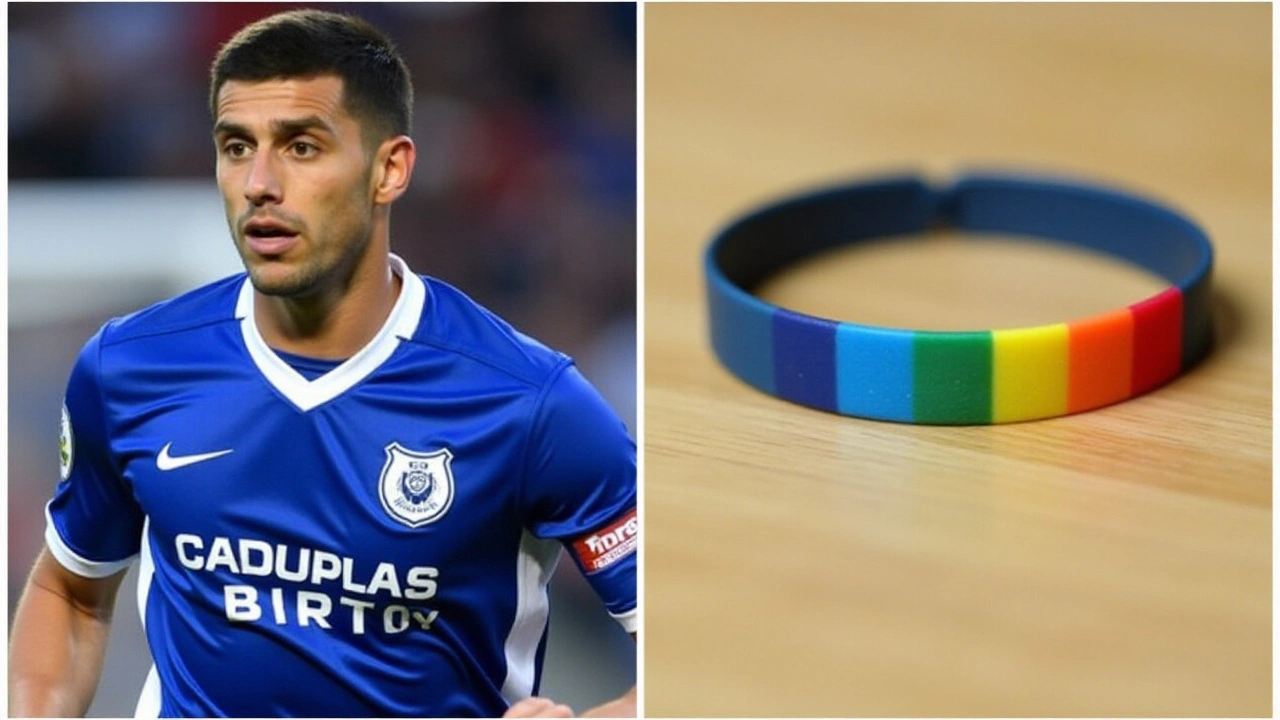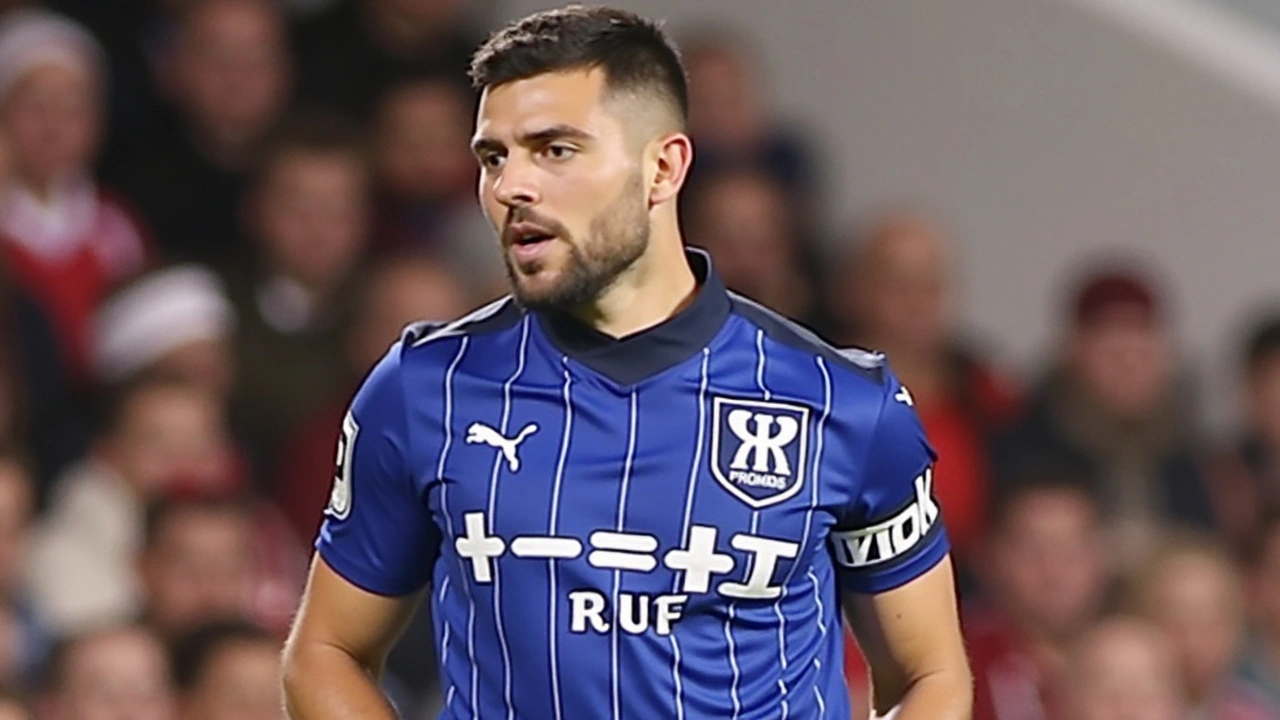Ipswich Town's Sam Morsy Balances Personal Beliefs and LGBTQ+ Advocacy in Rainbow Armband Debate

In Sports
The Intersection of Personal Beliefs and Professional Duties
In the world of professional sports, athletes encounter numerous situations that put their personal convictions at odds with organizational objectives. One such instance unfolded recently with Ipswich Town captain Sam Morsy's decision not to wear a rainbow armband, a symbol of support for the LGBTQ+ community, during his team's Premier League match against Nottingham Forest. Morsy's choice, driven by his religious beliefs, has turned the spotlight on the delicate balancing act athletes face when personal ideologies collide with professional responsibilities.
The Rainbow Laces campaign, a Premier League initiative established to foster inclusivity and acceptance for the LGBTQ+ community within football, represented a significant push towards diversity in the sports landscape. It was designed as a visible sign of the league's solidarity with LGBTQ+ players and fans. Despite the widespread adoption of the campaign, with most Premier League captains wearing the rainbow armband, Morsy opted out, making him the only captain not to participate in this symbolic gesture.
A Personal Decision with Broader Implications
Morsy's decision has sparked considerable discussion surrounding both the role of personal beliefs in a professional setting and the extent to which athletes ought to align with organizational efforts towards social causes. While his choice is rooted in his religious convictions, the wider community sees this as an opportunity to dissect ongoing conversations about freedom of expression versus institutional representation.
In a statement, Ipswich Town provided clarity, expressing respect for Morsy's right to his personal beliefs while simultaneously reaffirming their unwavering support for the LGBTQ+ community. The club highlighted that although players are encouraged to participate in campaigns like Rainbow Laces, individual decisions guided by personal beliefs are respected and acknowledged. This response evidences the club's dedication to honoring diversity in both the larger societal context and among its team members.

Fostering Inclusivity in Football
As sports organizations globally strive to cultivate inclusive environments, cases like Morsy's emphasize the multifaceted approach needed to achieve these goals. For many advocates of LGBTQ+ rights in sports, the Rainbow Laces campaign is just one step in a broader strategy to make football a welcoming space for people across the spectrum of identities. The significance of such campaigns lies not only in their symbolic value but also in their capacity to encourage dialogue and bridge divides between differing perspectives.
While Morsy's choice has drawn varied reactions from fans and campaign supporters, it underscores a critical question: How should sports leagues accommodate personal beliefs while advocating for universal inclusion? The answer may lie in a commitment to ongoing education, open dialogue, and creating support systems that both respect individual autonomy and champion inclusivity.
Future Steps: Navigating Complexity
Moving forward, sports institutions have a responsibility to address these complexities with sensitivity and empathy, recognizing that inclusivity means respecting diverse beliefs. Promoting an arena where players feel comfortable to express themselves truthfully, whether that means advocating for social causes or adhering to personal convictions, is paramount. This approach not only enriches the sporting world but also serves as a model for society at large, affirming the value of diversity in viewpoints.
The dialogue ignited by Morsy's decision is a testament to football's evolving role as a cultural touchstone. As the sport navigates its place in advancing social change, fostering a cohesive understanding of inclusivity places emphasis on flexibility, dialogue, and compromise. Teams, players, and fans alike are encouraged to participate in meaningful conversations that challenge the status quo and recognize the individuality that each person, both on and off the pitch, brings to the table.
In conclusion, Sam Morsy's choice invites the sports community to reflect on the myriad ways personal beliefs intersect with professional duties, urging a deeper examination of how these intersections influence broader societal norms. Through respectful dialogue and mutual understanding, football can continue to embrace diversity while honoring the individual convictions that drive its players.
Write a comment